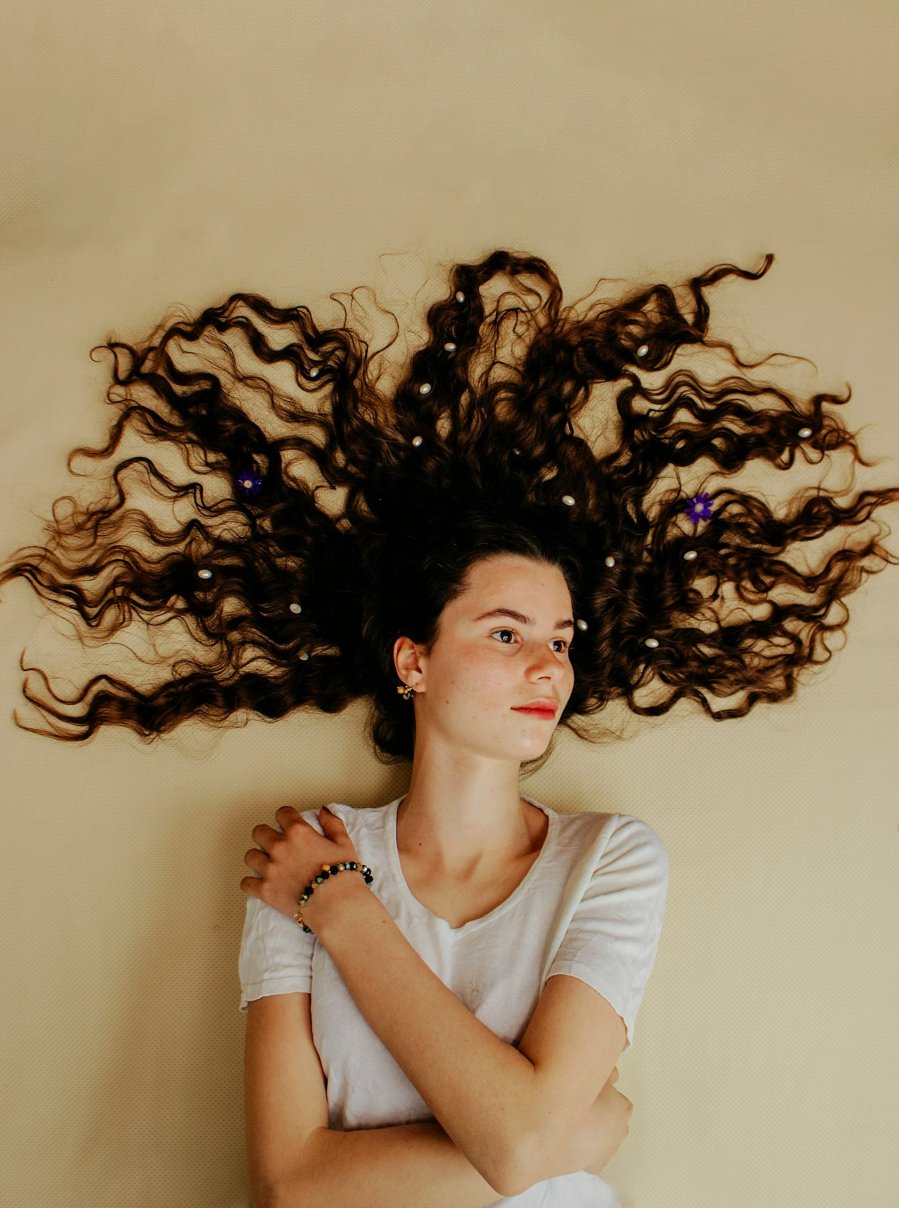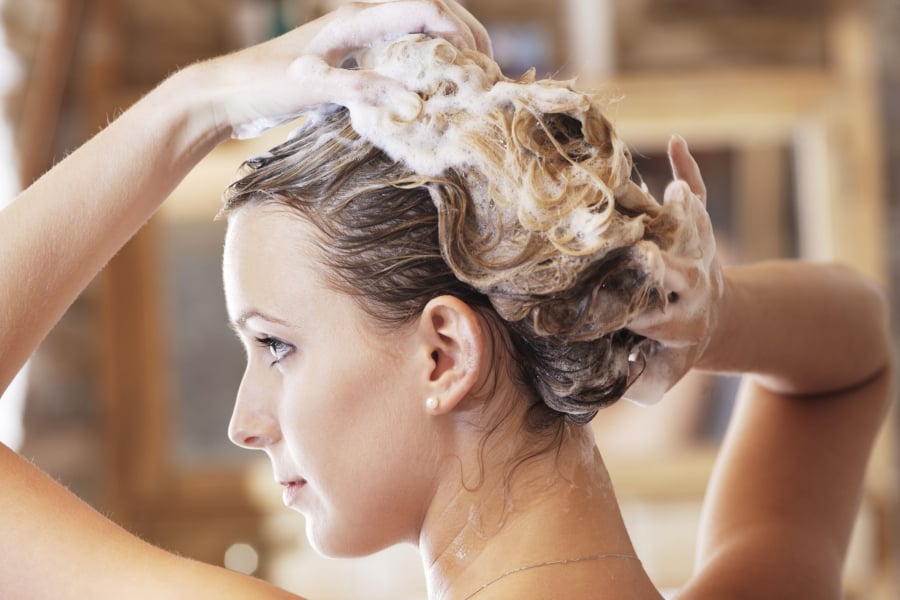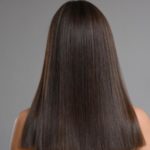The hair structure is made out of the keratin protein and has no mechanism that produces oil. Oily hair is caused by the excessive production of sebum by the sebaceous glands on the scalp. Like any other area of skin on the body, the scalp is covered with pores, also known as hair follicles. Hair follicles contain the hair shaft and the hair root inside them and have sebaceous glands. The purpose of sebaceous glands is to produce just enough oil required to keep the scalp moisturized. However, sometimes, due to certain reasons, the produced oil could be excessive and cause greasiness.
Internal Factors
During puberty or when taking certain medications which cause hormonal changes (such as birth control pills), you may notice that your hair becomes more oily. If affected by this, consult with your doctor to change your medication or add supplements which help in reducing the oiliness of your scalp.

During puberty or when taking medications causing hormonal changes (such as birth control pills), you may easily notice that your hair has become more oily.
Genetic factors can also be a cause of oily hair. Additionally, frequent and prolonged stress can also cause the hair to become oily faster.
You need to reduce stress by getting enough nutrition, relaxing, and exercising. You will notice that, in addition to your hair producing less oil, your mood and overall health will also be improved significantly.
External Factors
In humid environments, the moisture evaporates from your hair, causing it to feel heavy and become less voluminous. Use dehumidifiers to keep the surrounding environment dry.
Unclean hair styling tools, such as brushes and hairdryers, can also make hair dirty faster, increasing oil production.
Touching your hair often can stimulate it to produce more oil. Moreover, our hands are prone to bacteria, and touching your hair often can transfer dirt from your hands to your scalp and hair. This can cause your hair to become greasy and dirty faster.

Wash your hair daily or a maximum of twice a day. Every time you wash your hair, you should use enough shampoo and clean your scalp thoroughly.
Improper Hair Care
An unclean scalp and hair can lead to constant greasiness, foul smell, and issues like fungus and dandruff. Wash your hair daily or a maximum of twice a day. Use an adequate amount of shampoo and clean your scalp thoroughly each time you wash it. Hair care experts recommend leaving the shampoo on your hair and scalp for at least 3 minutes.
Washing your hair more than once a day can remove the layer of oil from your scalp. This can unintentionally stimulate the sebaceous glands, which makes your hair oily faster. Avoid washing your hair with excessively hot water, as this can also make your hair greasier. Stick to lukewarm or cool water instead.
Using the wrong shampoo, conditioner, and hair care products can also make your hair greasy faster. Use only the recommended amount of hair conditioner on the tips of your hair. Do not apply it near the roots of your hair or on your scalp. Use shampoos made from natural ingredients and avoid those that contain silicone.



































